In today’s society, women are seen in positions of significance and prominence, a development that’s incredibly encouraging. They are having a successful run in numerous spheres like politics, sports, business, arts, technology, science, entertainment, and even the fashion industry where they play a major role among others, which were previously dominated by men. However, there’s room for improvement as in many developing countries globally, women are still unable to vote and aren’t regarded equally as men. It’s essential to remember that for many decades, women were unable to participate in many activities we now see as commonplace, including competing in the Olympics or performing on stage. Although significant progress has been made, the journey of the feminist movement is still far from complete.
Nothing has easily and freely been given to women; they have had to struggle and in many cases wage bloody battles for the rights and positions they now hold in modern society. Many women became martyrs and lost their lives during the process so that millions of women today could enjoy various freedoms and opportunities. Today we proudly present 25 Intriguing Facts About The History Of The Feminist Movement in honor of all the amazing women, both well-known and unsung, who paved the way for women’s rights and equality.
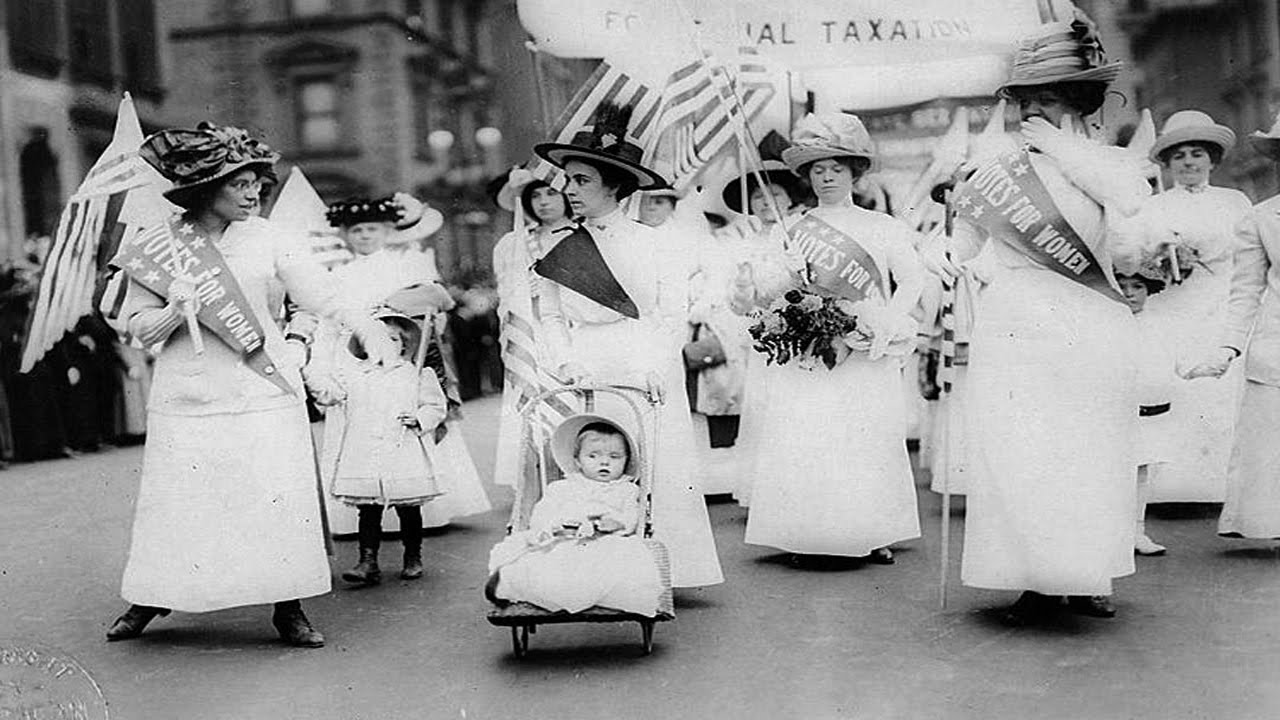
Feature Image: Shutterstock25 Intriguing Facts About The History Of The Feminist Movement
The word “feminism” first appeared in the English language in the 1890's, even though the struggle of women against discrimination and sexism was much older.
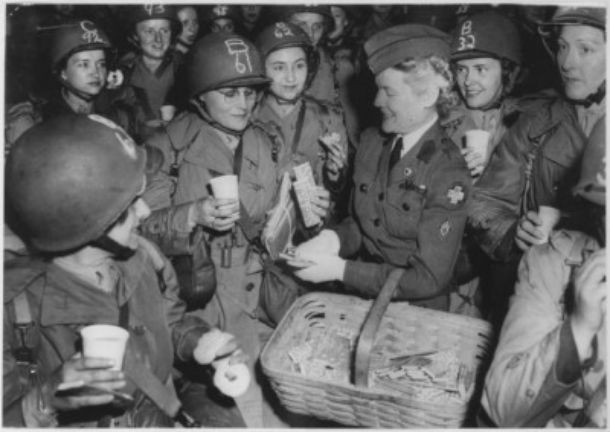 Source: dictionary.cambridge.org, Image: Wikipedia
Source: dictionary.cambridge.org, Image: Wikipedia The feminist movement is often divided into two major waves. The first wave began with the suffragette movement and the struggle to extend the right to vote to women in the late nineteenth and early twentieth centuries. The second wave spanned the mid-1960's through the late 1970's with debates about abortion and equal pay.
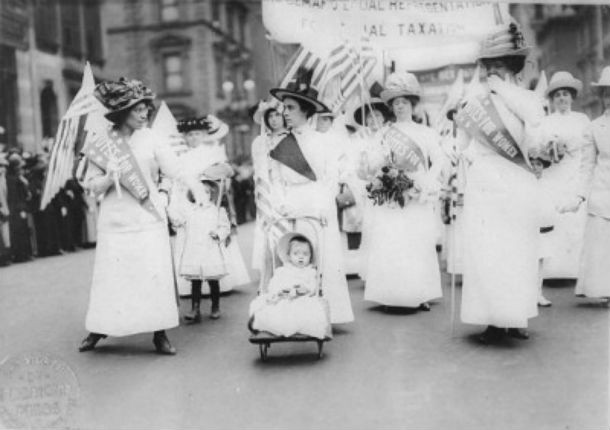 Source: britannica.com, Image: Wikipedia
Source: britannica.com, Image: Wikipedia The first country to grant women the right to vote in the modern age was New Zealand in 1893.
 Source: womensissues.about.com, Image: Wikipedia
Source: womensissues.about.com, Image: Wikipedia You might think that Hillary Clinton is the first woman to run for US president, but that honor belongs to Victoria Woodhull, who ran for the office in 1872 under the National Woman’s Suffrage Association. While women were not able to vote, there were no laws prohibiting them from running for office.
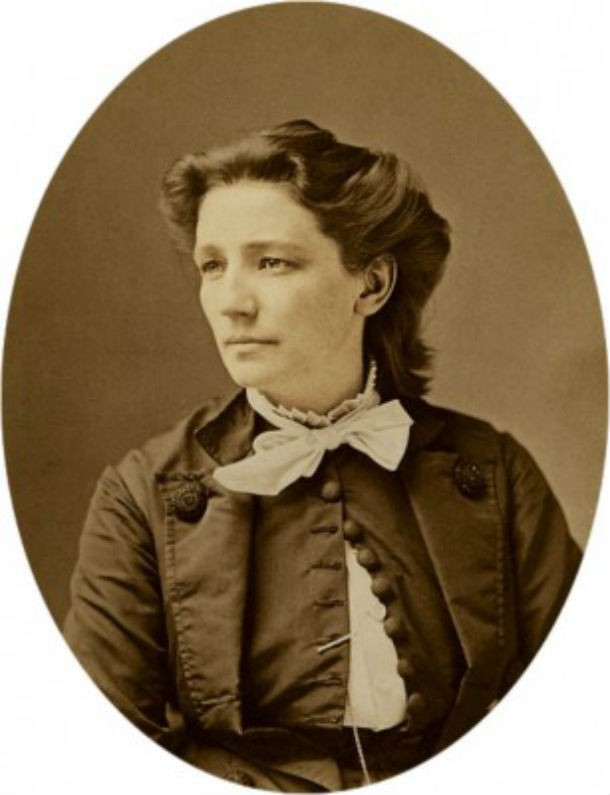 Source: history.com, Image: Wikipedia
Source: history.com, Image: Wikipedia The first woman in the modern era to rule a country as an elected leader was Sirimavo Bandaranaike of Sri Lanka, who was elected prime minister in 1960 and then later reelected in 1970.
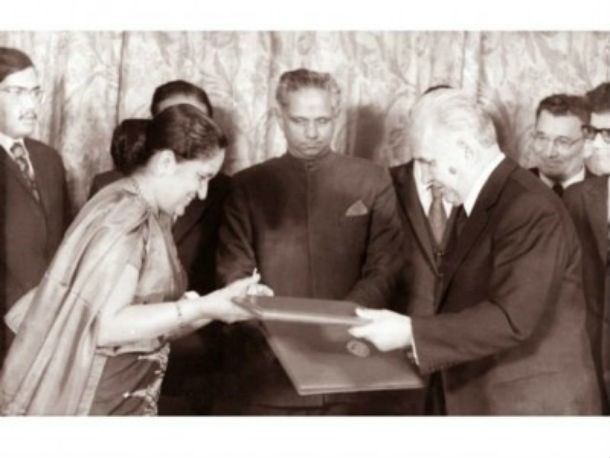 Source: history.com, Image: Wikipedia
Source: history.com, Image: Wikipedia Wyoming was the first state to grant voting rights to women. It was also the first to elect a female governor.
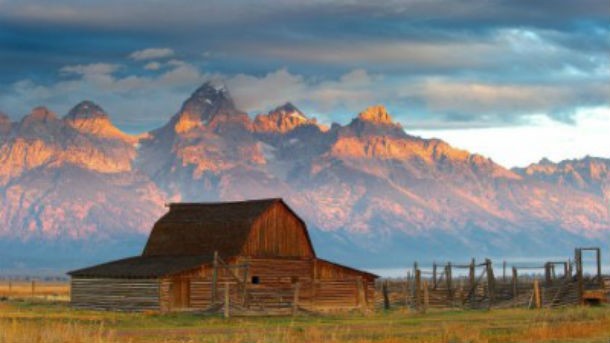 Source: history.com, Image: Wikipedia
Source: history.com, Image: Wikipedia Long before woman's suffrage in 1777, sixteen-year-old Sybil Ludington became a heroine of the American Revolutionary War when she rode her horse, Star, to warn the colonial forces that the British were approaching.
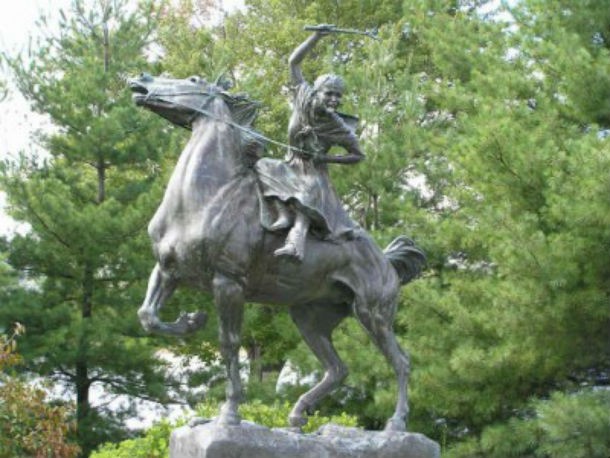 Source: history.com, Image: Wikipedia
Source: history.com, Image: Wikipedia In Saudi Arabia, women are not allowed to drive, but they are currently challenging this law.
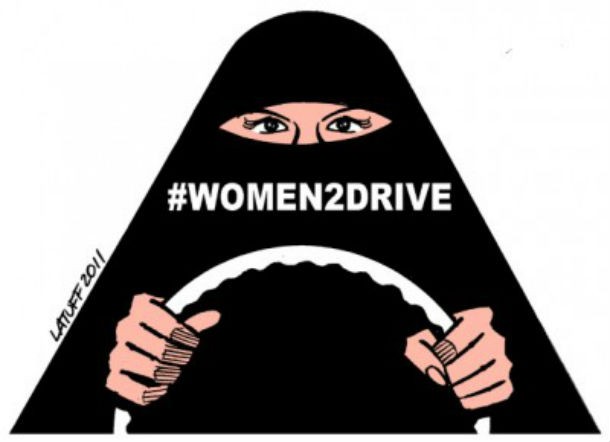 Source: womensissues.about.com, Image: Wikipedia
Source: womensissues.about.com, Image: Wikipedia The first woman to receive a Pulitzer Prize was Edith Wharton in 1921 for her novel, The Age of Innocence.
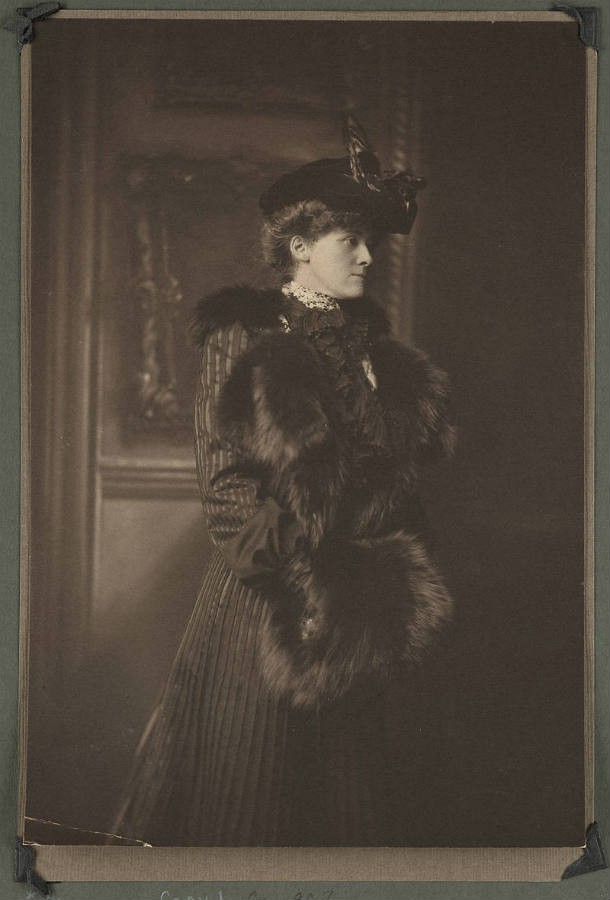 Source: pulitzer.org, Image: Wikipedia
Source: pulitzer.org, Image: Wikipedia Fifty-two countries have had a female head of state over the past fifty years, including England, India, Bangladesh, Sri Lanka, Pakistan, and Liberia. However, the United States is among those that never have, though Hillary Clinton might change that in a few months.
 Source: womensissues.about.com, Image: Wikipedia
Source: womensissues.about.com, Image: Wikipedia The first woman to run and finish the Boston Marathon was Roberta Gibb in 1966. However, because women were not allowed to officially enter the race until 1972, she did not get credit.
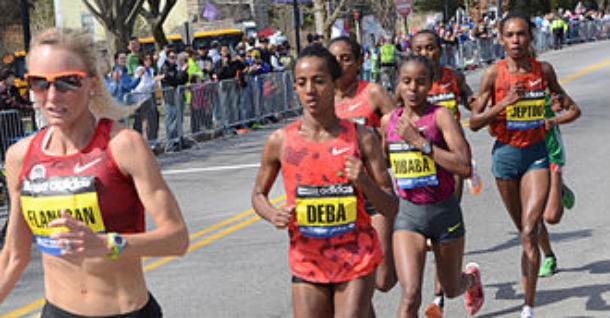 Source: womensrunning.competitor.com, Image: Wikipedia
Source: womensrunning.competitor.com, Image: Wikipedia Interested to hear about more powerful women in history? Check out 25 Women Who Defied Gender Roles And Made History.
Women are more likely to get a high school diploma than men. In addition, over sixty percent of college degrees in the United States are awarded to women. One could argue that education in the United States is a woman’s territory nowadays.
 Source: usa.gov/statistics, Image: Wikipedia
Source: usa.gov/statistics, Image: Wikipedia In 1950, women comprised less than two percent of the U.S. military. Currently, about fifteen percent of active members in the U.S Armed Forces are women.
 Source: usa.gov/statistics, Image: Wikipedia
Source: usa.gov/statistics, Image: Wikipedia In 1850, Harriet Tubman was the first woman to run an underground railroad to help slaves escape. Some scholars label her the “Queen of the Underground Railroad.”
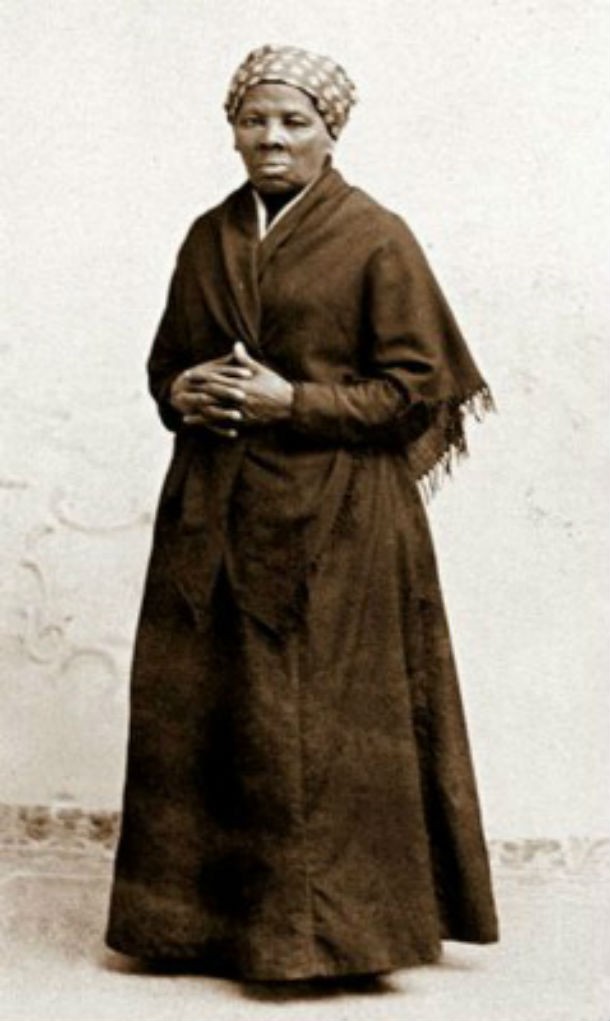 Source: africanamericanhistorymonth.gov, Image: Wikipedia
Source: africanamericanhistorymonth.gov, Image: Wikipedia In Britain in the late 60's/early 70's (during the second wave of feminism), the sculptor Allen Jones became the target of feminist attacks for his series, Women as Furniture, which depicted women with fetishized bodies used as supports for coffee tables.
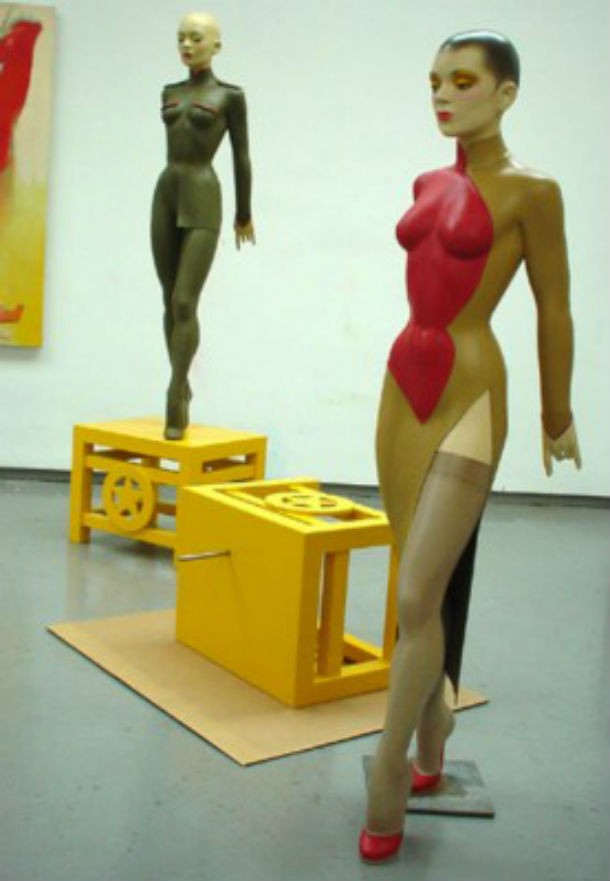 Source: etalorsmagazine.com/allen-jones, Image: Wikipedia
Source: etalorsmagazine.com/allen-jones, Image: Wikipedia Sobekneferu was an Egyptian female who was pharaoh after the death of her brother, Amenemhat IV. She was the first female ruler of Egypt and the last ruler of the twelfth dynasty.
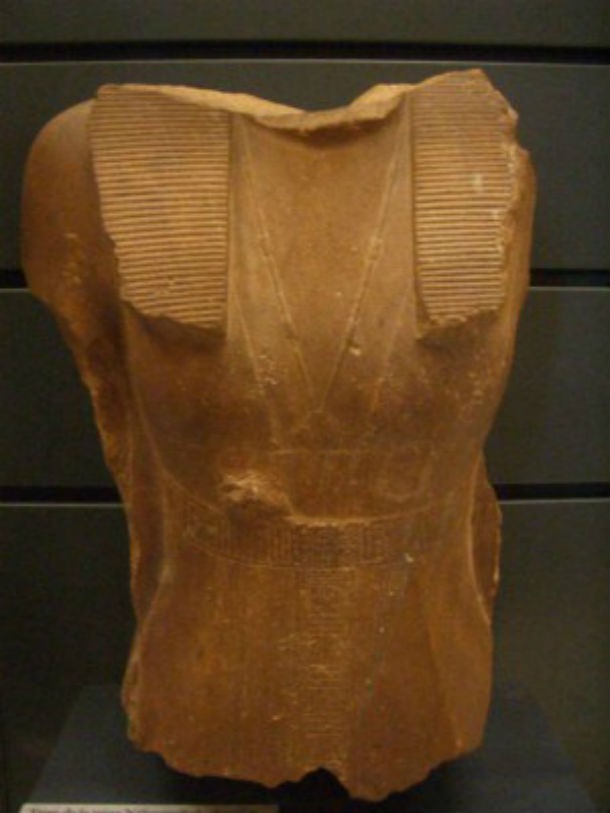 Source: history.com, Image: Wikipedia
Source: history.com, Image: Wikipedia The first American woman to be awarded the Nobel Peace Prize was Jane Addams in 1931. She was a pioneer settlement activist/reformer, social worker, public philosopher, sociologist, author, and leader in women’s suffrage and world peace.
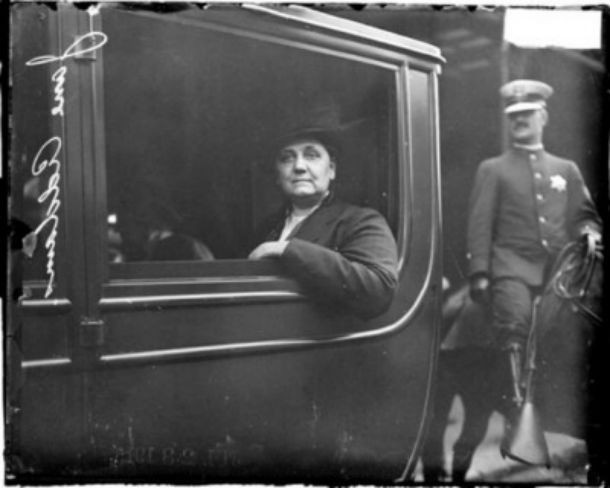 Source: nobelprize.org, Image: Wikipedia
Source: nobelprize.org, Image: Wikipedia According to a Huffington Post poll, only twenty percent of Americans consider themselves feminists. Approximately eight percent consider themselves anti-feminists, while sixty-three percent said they are neither. However most respondents (eighty-two percent) believe that men and women should be equal, with only nine percent saying that men and women should not be equal.
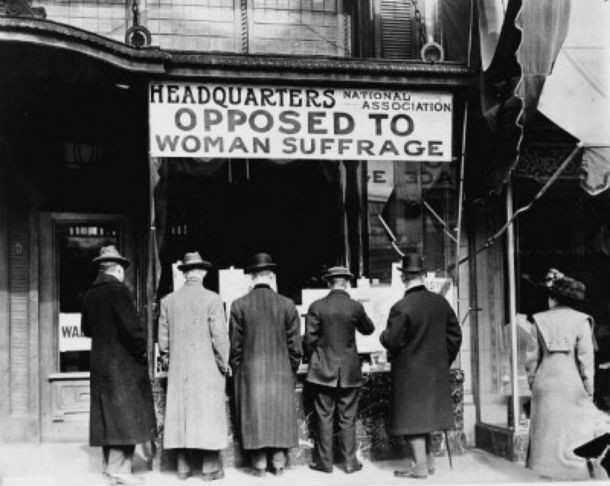 Source: huffingtonpost.com, Image: Wikipedia
Source: huffingtonpost.com, Image: Wikipedia Many feminists see the introduction of the pill in 1965 as a key point in feminism’s history since it has helped millions of women globally to choose between a full-time career and motherhood—or both.
 Source: womensissues.about.com, Image: Wikipedia
Source: womensissues.about.com, Image: Wikipedia Since 2016 is an Olympic year, let’s not forget that the 1900 Olympic Games in Paris were the first to allow female athletes. During those Olympics, England’s Charlotte Cooper became the first woman to win gold at the Olympics when she won the women’s tennis singles tournament.
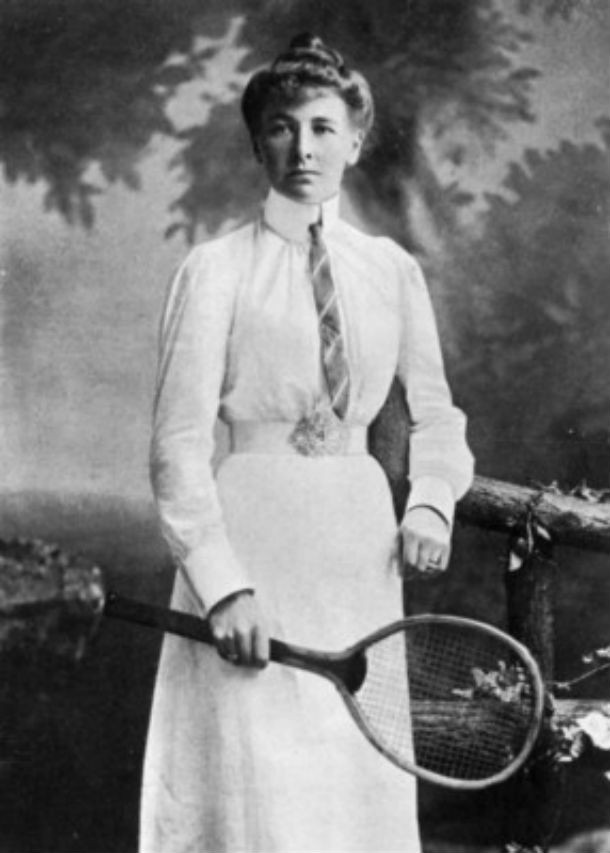 Source: olympic.org, Image: Wikipedia
Source: olympic.org, Image: Wikipedia Over two thousand years before Charlotte Cooper though, Kyniska, daughter of King Archidamos of Sparta, became the first woman to be listed as a champion in the Olympics. Her chariot won in the four-horse chariot race in the ninety-sixth and ninety-seventh Olympiads in 396 BCE and 392 BCE, respectively. It’s well known that in the Ancient Olympic Games, women not only were disallowed from competition, but they also weren't allowed to watch the Games. Kyniska broke that rule since, in the equestrian events, the victory wreath was earned by the horse’s owner and not the rider.
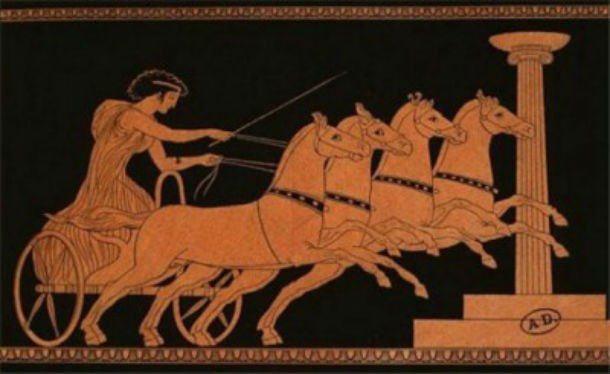 Source: olympic.org/ancient-olympic-games, Image: Wikipedia
Source: olympic.org/ancient-olympic-games, Image: Wikipedia American lawyer Martha Wright Griffiths helped push the Sex Discrimination Act in 1964 as part of the Civil Rights Act. The act aims to help protect women from discrimination on the job and in their everyday lives.
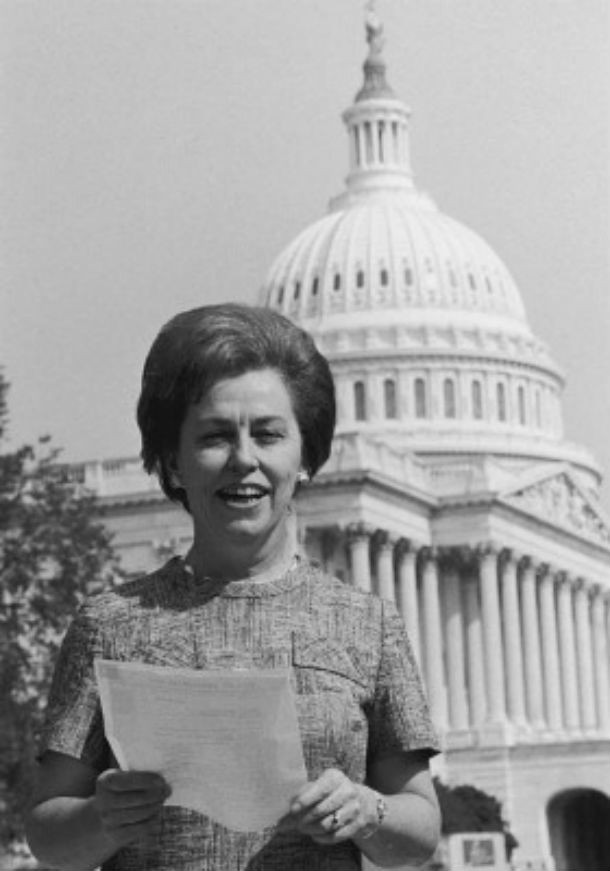 Source: history.house.gov, Image: Wikipedia
Source: history.house.gov, Image: Wikipedia Irene of Athens was a Byzantine ruler, a saint in the Greek Orthodox Church, and the only woman to rule the Byzantine Empire (not as a wife but alone) from 797–802. For the record, Irene reigned as an emperor (not empress) and is the only woman to hold the title of Autokrator.
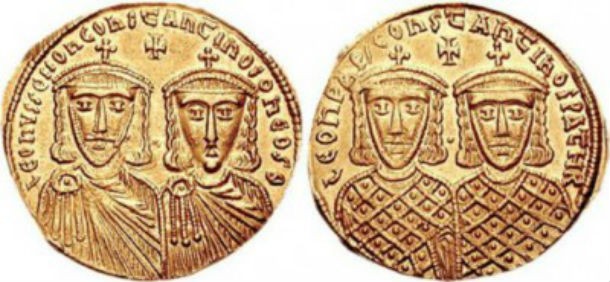 Source: byzantinemuseum.gr, Image: Wikipedia
Source: byzantinemuseum.gr, Image: Wikipedia The first woman in space was Valentina Tereshkova. The Soviet cosmonaut beat out four hundred applicants to pilot the Vostok 6 spacecraft in 1963, thereby becoming the first woman to fly in space. She completed forty-eight orbits of the earth in her three days in space.
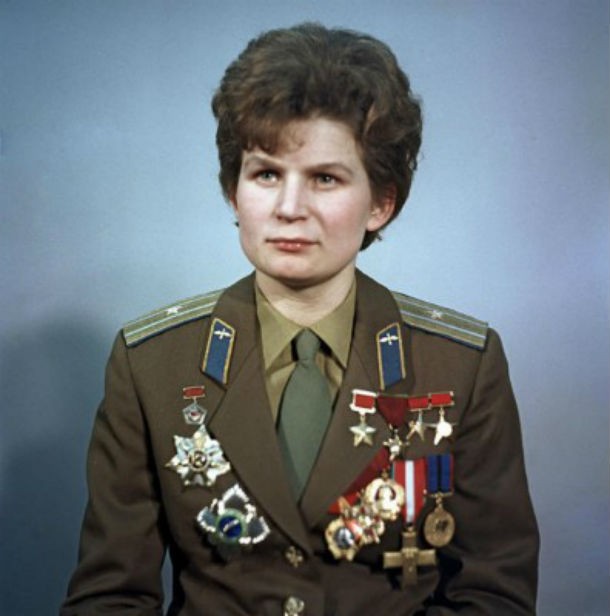 Source: biography.com, Image: Wikipedia
Source: biography.com, Image: Wikipedia The first woman to win a Nobel Prize was Marie Curie, who won the prize in Physics in 1903 with her husband, Pierre, and Henri Becquerel. Curie is also the only woman to have won multiple Nobel Prizes; in 1911, she won it for Chemistry.
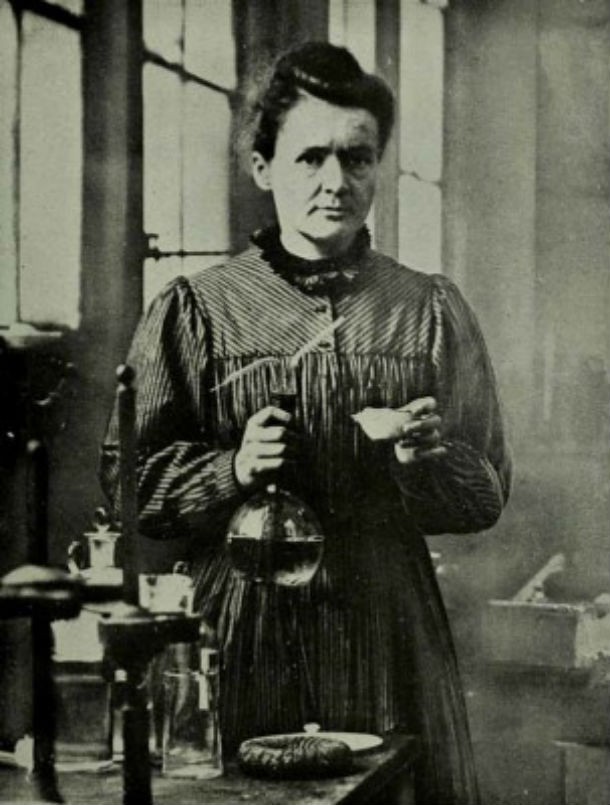 Source: womensissues.about.com, Image: commons.wikimedia.org
Source: womensissues.about.com, Image: commons.wikimedia.org 


























